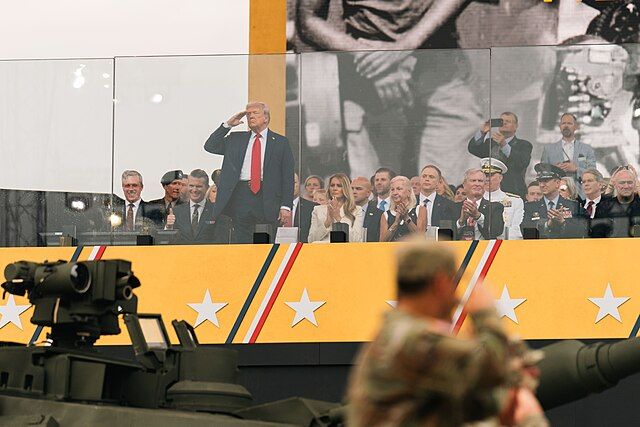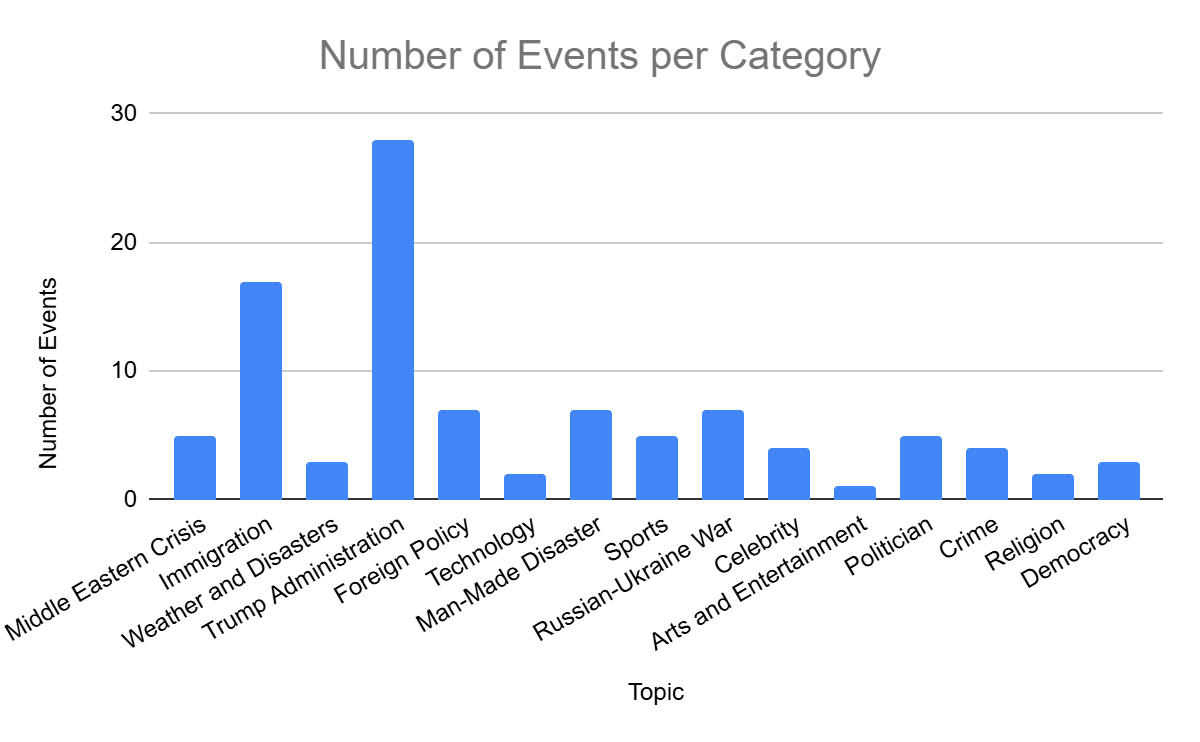Trump v Biden: How the Media Covered the Presidential Debate
By Samar Haider
On Thursday night, President Joe Biden and former President Donald Trump went head-to-head in the first of two presidential debates of the 2024 election, which has resulted in a storm of news coverage in the days since. In this blog post, we dig into the core Media Bias Detector dataset from the immediate aftermath of the debate (June 28 and 29) to see what this coverage looked like.
In these two days, almost all news stories on the 2024 election revolved around the debate in one way or another, as shown in Figure 1. But what’s interesting to see is that more than half of them (102 out of 197) focus primarily on President Biden’s age, with even more referring to the same issue indirectly from within the other two categories (Presidential Horse Race and Voter Concerns) as well.
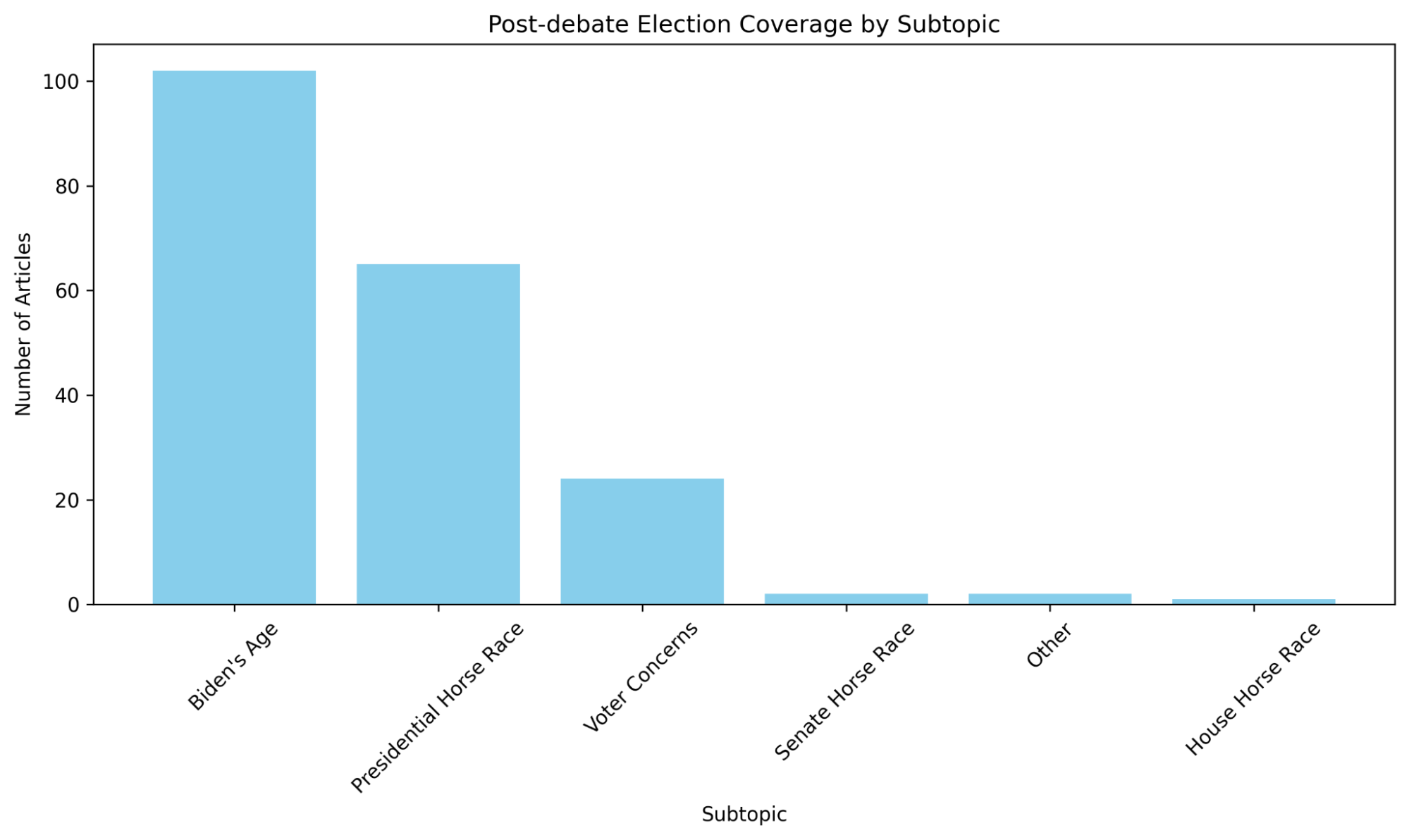
Figure 2 shows this breakdown by publisher, and we see that not only was Biden’s age the top focus across the board, but that right-leaning outlets like Fox and Breitbart devoted a disproportionate amount of attention to it, publishing more articles about his age than the entire election coverage of other publishers.
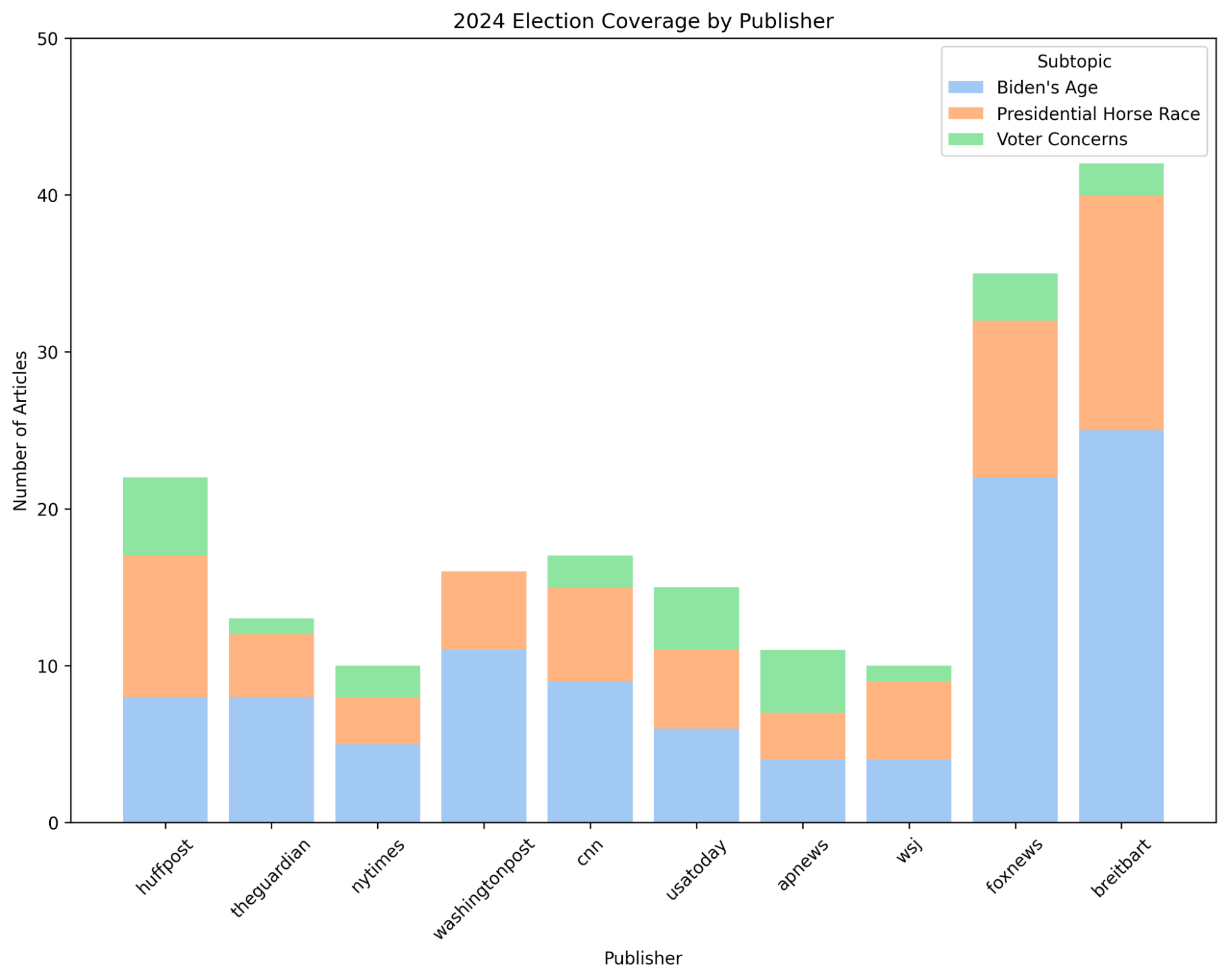
Furthermore, nearly all coverage on these topics leaned pro-Republican. Figure 3 shows the average political lean of these articles (headline + text) by topic. While articles on voter concerns and the horse race in general are neutral to slightly pro-Republican, articles about Biden’s age have a much stronger pro-Republican lean, which shows that few, if any, articles about it were written to reassure Democratic voters about his ability to serve a second term as President.
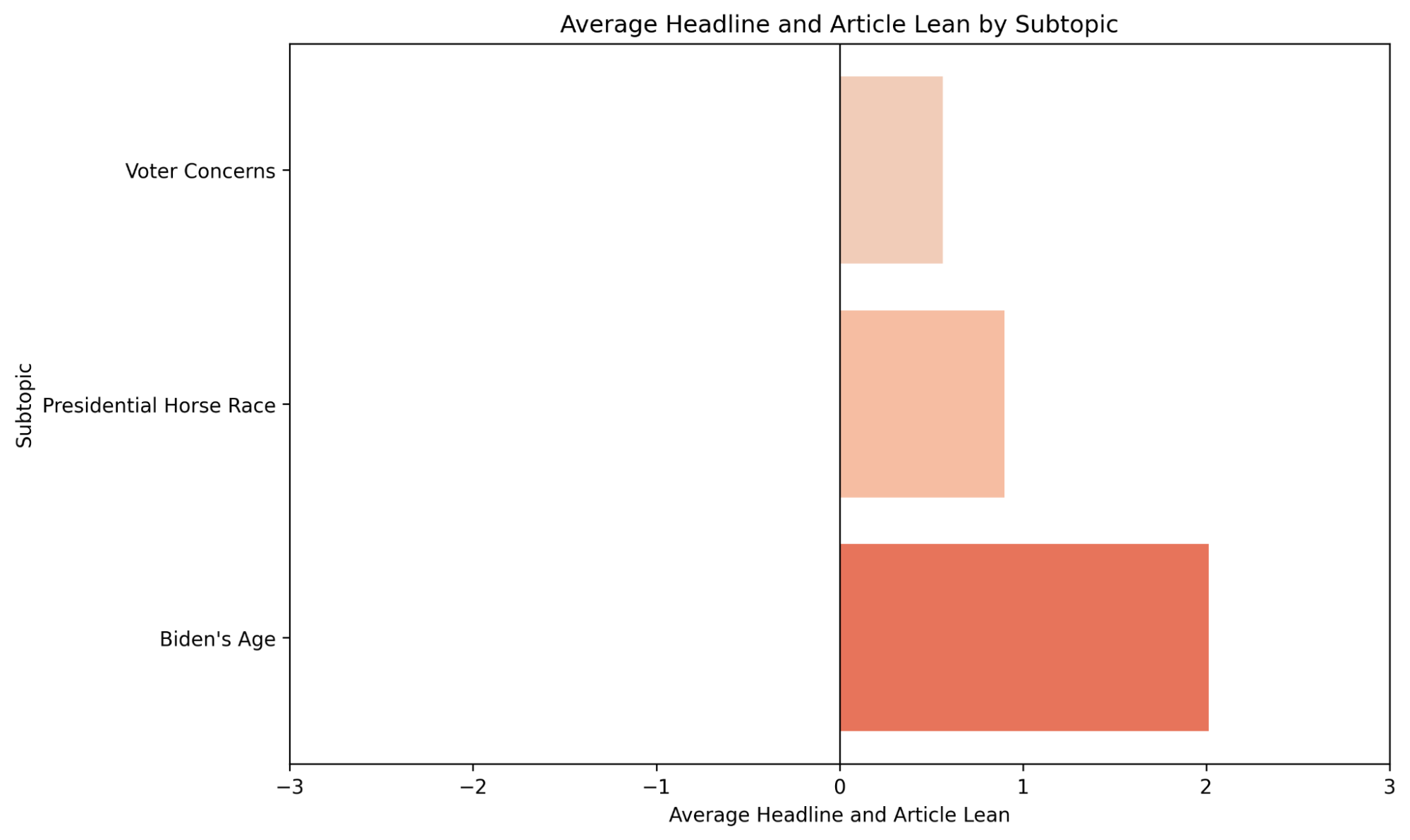
The other major talking point of the debate, Donald Trump’s many false statements, received very little attention in comparison. We extracted all factual statements from the news articles on the above three topics and clustered them together based on their semantic similarity to find the most frequently repeated facts. Table 1 shows the top five, along with how many articles they showed up in. Of these five, one is a neutral statement about the debate, one is a positive statement about the Biden campaign's fundraising success, and three are negative statements about Biden’s performance and its fallout.

To dig deeper, we searched for all sentences with certain combinations of keywords. For Biden’s age, we looked for his name occuring in a sentence along with either one of the words ‘age’ or ‘voice’. For Trump’s false statements, we looked for his name and ‘false’ or ‘lie’. The results are stark: more than twice as many sentences contained references to Biden’s age than they did to Trump’s lies.
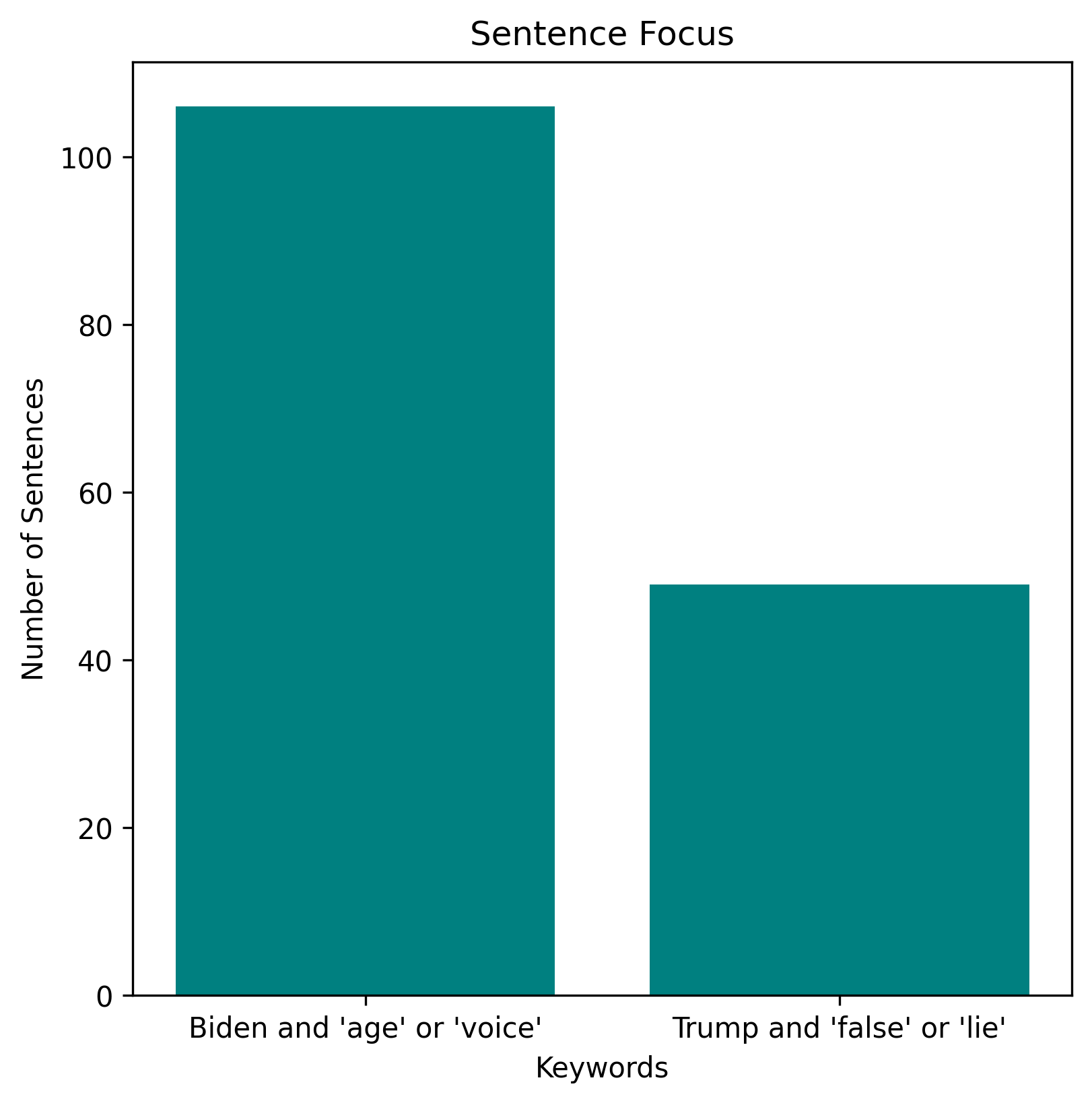
Finally, another way that publishers can produce biased news coverage is by selectively choosing whom to quote in their stories. To investigate this, we extracted all quotes by the two candidates from the debate and counted how many times each showed up in news articles. Table 2 shows the top ten quotes. While the attention is more balanced here, we still find that four of the top six quotes were by Donald Trump. Note: the top quote overall in these two days was Biden’s “when you get knocked down, you get back up” line from his post-debate rally in North Carolina which was quoted 23 times, but in this table we only list quotes from the debate itself.
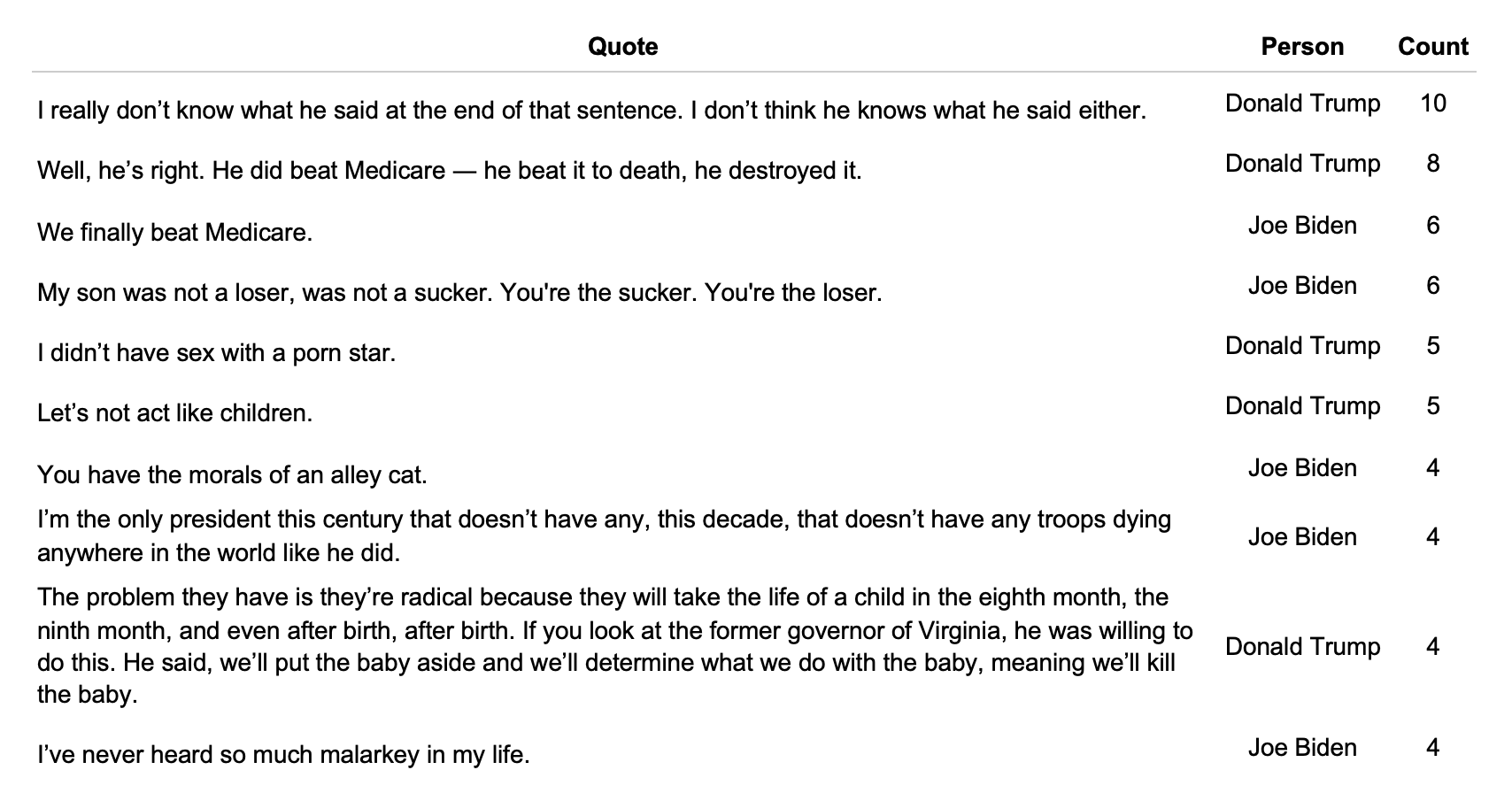
In summary, we found substantial differences in the way the media reported about each candidate’s performance in the presidential debate. While people’s views about them may vary based on their politics, the way the media reports on it can have a significant impact on their perception as well. We encourage readers to exercise caution when relying on the news cycle to form an opinion about such events. And we encourage journalists to be more impartial in what they choose to highlight when they cover them.
